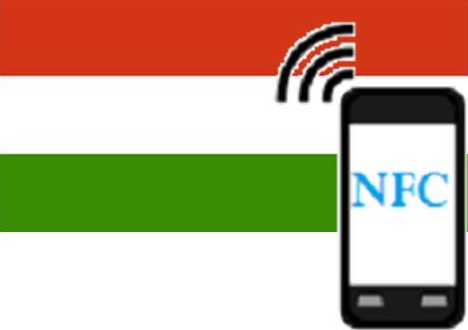The enhanced jewelry will unlock doors, transfer data, link people, and communicate with other devices.
Even NFC technology becomes more widely recognized, the majority of people have yet to work it into their everyday activities either because their own smartphones are not enabled or they simply don’t see the benefit.
This is, in part because the tech has experienced a broad struggle in becoming a part of the mainstream.
However, a man named Jon McLear is betting that the use of an NFC technology enabled ring will be all that is needed to show the world some of the amazing things that near field communication can do, so that it will burst into mainstream common use. Some examples include unlocking phones and doors, among other things.
The NFC technology ring project was started by McLear through the use of Kickstarter.
At the time of the writing of this article, McLear had already doubled his goal of £30,000, having received over £61,700 through the donations of more than 2,200 backers. As the funding opportunity closes on August 19, this clearly indicates that there will be many more funds to come and that the mastermind behind this project will have much more than he anticipated needing in order to bring this device to the market.
The NFC technology enabled ring will never require charging despite the fact that it simply needs to be worn on the finger and can be used for many different purposes, including data transfers (for example, WiFi information, website links, contact information, or other custom info) or being applied as a high tech house key.
This tiny NFC technology based device is bringing wearable mobile tech to an entirely new level. In order to use it with a reader – such as a smartphone with a near field communication chip or a door lock reader – the hand wearing the ring simply needs to be waved in very close proximity. The Android phone capabilities will be available through a free third party app called NFC Ring (developed by John McLear), and the door locks will be similar to the Lockitron security systems.
The three leading wireless firms in the country will be launching the new system in the new year.
The three largest mobile phone companies in Hungary have announced that they are working together to be able to launch a payments system in 2014 that will be based on NFC technology.
The purpose of this alliance is to help to move the country upward toward the trends in global communication.
At the moment, the sector is fighting to manage the struggles that remain from the economic downturn as well as from certain sector-based taxes from the Hungarian government that have been applied to telecommunications companies in the effort to better the finances of the nation.
NFC technology will be central to this new mobile payments system that allows transactions at checkouts.
The mobile payment technique through NFC technology allows consumers to use their compatible smartphones at shopping checkouts in order to pay for their purchases. All that they need to do is wave their enabled devices close to a reader, or tap the device against the reader. This reduces the time that is needed to make a purchase, improving convenience for consumers and allowing stores to shorten the checkout process.
The NFC technology based payments system will also be used to replace the electronic smartcard ticket system that is already in place in some of the Hungarian transport systems. It is expected to eliminate the systems that are comparable to the Oyster card in London. This same technology is being used by certain security companies to function as identification that will provide employees access to buildings in the same way that they previously would have used electronic scan cards.
The Hungarian firms are aiming to create mobile payments applications that will work with NFC technology capable devices so that smartphones can be u sed as virtual wallets, containing all of the debit, credit, and loyalty card information that they wish to hold in one place. This suggests that the digital form of the wallet could one day result in a complete replacement of physical wallets and plastic cards, as well as cash transactions.
sed as virtual wallets, containing all of the debit, credit, and loyalty card information that they wish to hold in one place. This suggests that the digital form of the wallet could one day result in a complete replacement of physical wallets and plastic cards, as well as cash transactions.

 sed as virtual wallets, containing all of the debit, credit, and loyalty card information that they wish to hold in one place. This suggests that the digital form of the wallet could one day result in a complete replacement of physical wallets and plastic cards, as well as cash transactions.
sed as virtual wallets, containing all of the debit, credit, and loyalty card information that they wish to hold in one place. This suggests that the digital form of the wallet could one day result in a complete replacement of physical wallets and plastic cards, as well as cash transactions. 